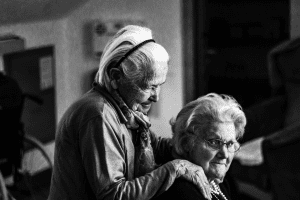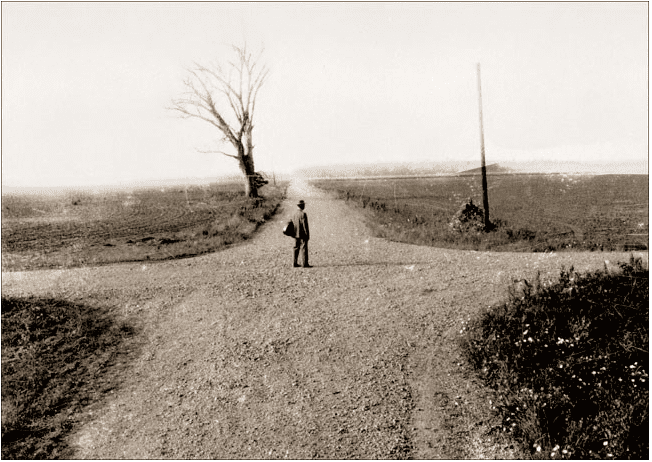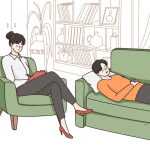You’ve been working for many years and now you are approaching retirement. You know people who have already retired and while some seem happier than others, you might be wondering how retirement will be for you. You might ask, ‘What will it take for me to be happy during this new life transition?’, and/or ‘Am I ready for retirement?’
What is retirement and what does it involve?
Retirement can be described as a life stage that involves the termination of one’s employment. It can also be viewed as a state of mind whereby the individual recognises oneself as being retired. This can happen at any time, but most individuals retire in late adulthood. This transition entails a major change in one’s life as it involves the loss of the work/life structure and the need to come up with a new retired lifestyle to replace it. Retiring means there would be a need to figure out not only how to manage financially but also what one will be doing with all of the time they now have in their hands. Therefore, it can be a really stressful transition in one’s life as it requires one to say goodbye to things that before were routine and perhaps also defined one’s life; whilst negotiating new choices and taking important decisions.
Retirement does not only affect the routine retirees lead but also the relationship with significant others as retiring would mean adapting to spending more time together during the day and making compromises.
Different reactions to Retirement

The prospect of retiring is viewed differently by different individuals. Some view it as an opportunity to do things that were not possible when one was engaged in a full-time position. Others might similarly look forward to retirement and the freedom that comes with it as they would have reached a stage where they are tired of the responsibility and strain that comes with having a job. For others, retirement might mean a loss in the structure and routine that work provided, and a loss of meaningful social ties that work gave them. Additionally, retiring might make some individual start to ask themselves, ‘Who am I now that I am not working?’, ‘What is my purpose?’ This is especially the case for those whose life is centred around work. Work can serve as a medium through which one gains validation and fulfillment that they are useful to the world. The mindset adopted when thinking about retirement might shift as one negotiates this important life transition. For many, this new change might be something they are looking at with a mixture of anticipation and anxiety; due to the unexpectedness of what is going to happen.
What influences one’s adjustment to retirement?
How one transitions through this phase is influenced by various factors including whether one’s retirement was a voluntary choice or involuntary due to specific circumstances; whether there are other changes taking place such as, loss of a loved one, physical ailments, having to take care of a loved one; the level of financial security; one’s resources (social contacts, interests, goals); amongst others. These might serve to influence one’s available options when it comes to planning how to spend one’s retirement.
What would be useful to consider when thinking about my retirement?
- Planning pre-retirement: Retirement is a major life transition and it is therefore important to start thinking about how to spend the rest of your life. Planning allows time for considering the options available. Finding something truly meaningful to do is not an easy task and making adjustments prior to this transition can help reduce some of the stress and anxiety experienced. Giving serious thought and time to what will be done after retiring generally allows for a smoother transition.
- Structuring the day: Some might find that creating a routine for the day or week helps in giving the structure that work used to provide. Having a routine helps in remaining active and provides a sense of predictability and something to look forward to. It is also beneficial to ensure that the weekly routine includes free time for enjoyed activities.
- Connecting with others: When the main source of social interaction for the person is work, it is not uncommon for one to feel isolated and lonely once they stop working. It is essential to invest in social relationships outside the work circle as they can be an important source of support. Social interaction is important for maintaining one’s well being and sense of belongingness. This can also mean increasing the time spent with family members (such as, sharing stories with grandchildren, visiting relatives, etc) and creating new contacts by enrolling in groups consisting of other retirees. Various day centres that allow for social interaction have been set up in different localities. For more information, visit https://activeageing.gov.mt/en/Pages/Day-Centres/Day-Centres.aspx

- Volunteering: Engaging in voluntary work is another pursuit that can bring one a great sense of fulfillment. Volunteering allows retirees the opportunity to share their knowledge and experience, whilst feeling that they are still contributing to society. This in turn would serve to provide a new found purpose and provide opportunities for making new friends.
- Continued Education: Learning something new is not limited to those who are younger. There are various opportunities for learning available such as, learning another language, a new skill and playing a musical instrument. In Malta, various lifelong learning courses covering different skills are held. Visit https://lifelonglearning.gov.mt/public/frmCurrentCourses.aspx for a list of the courses offered. There is also the University for Third Age. Visit https://www.um.edu.mt/u3a/applicationform for more information.
- Doing things we enjoy: Retirement provides the opportunity for retirees to take on hobbies and interests that they used to enjoy but did not have the time for. Some might also be interested in travelling to different countries. These activities would serve to make us feel good about ourselves, provide a chance to socialise with others with similar interests and keep our mind and body active.
- Continuing to work: Stopping work altogether, when for some individuals it is the main source of motivation, sense of purpose and identity; can be a very big leap to adjust to. Discussing the possibility of continuing to work with one’s employer at reduced hours or on a part-time basis would allow the person to retire gradually and have time to rediscover old hobbies and search for new pursuits. These would eventually serve to replace the satisfaction and meaningfulness currently derived from one’s job.
- Exercise: It is also essential stay active and ensure frequent physical activity. Regular physical activity promotes good sleep patterns, boosts self-esteem and also serves as a meaningful activity. Whether it entails going to the gym, engaging in organised sport activities, going for a long walk or taking up gardening; it is up to one’s preference.
- Keeping your mind active: Keeping our mind active is also important. Engaging in activities that stimulate the brain such as, crossword puzzles, reading a book, trying out routine tasks differently, and so on; not only helps decrease the chance of developing Alzheimer’s disease but also can help one remain active.
- Seeking help: In some cases, an individual might be really struggling to adjust to retired life and cope with the emotional toll that comes with this change, despite trying out different things. In such cases, it might be useful to seek professional help such as, a counsellor. The role of the counsellor would be to support you whilst you’re trying to find out what would make your life meaningful and satisfactory.

Give it time
Whatever lifestyle one chooses to lead, it is essential that each goal and expectation is realistic. Planning a lot of new things at one go might be difficult to actualise. Adjusting to retirement is not straightforward. It can therefore take some people quite a while until they settle into this new phase of their life. It is important to be patient and change things slowly.
Given that retirees will probably spend a good number of years in this life stage since individuals are now living longer, rather than viewing retirement as an end stage, it can be seen as a chance for a new beginning. A chance to make life changes and restructuring the day around things that bring you satisfaction and new meaning to life.





























